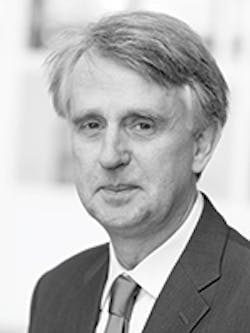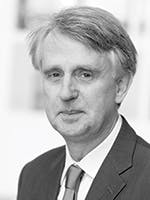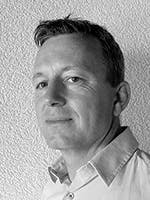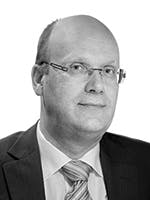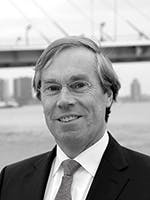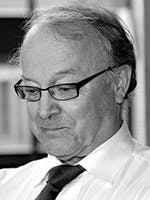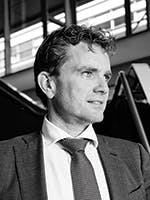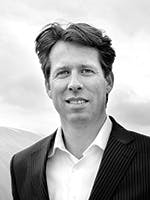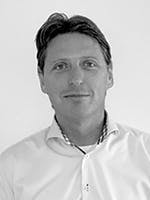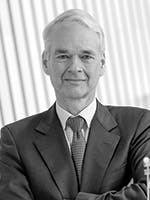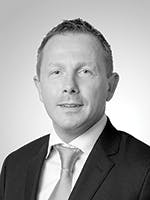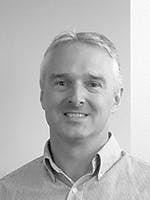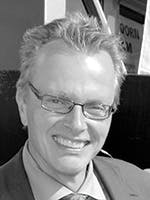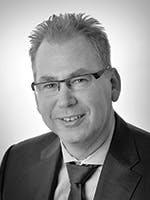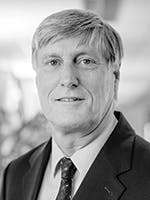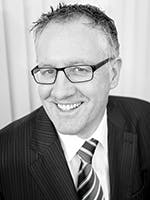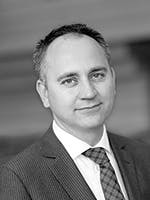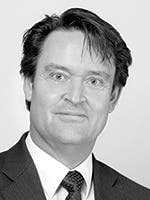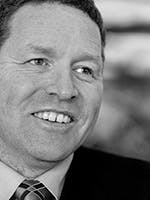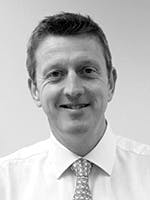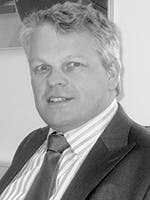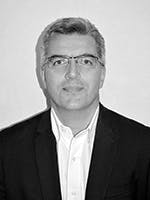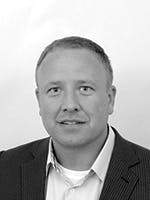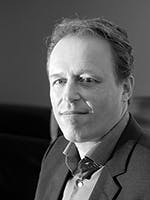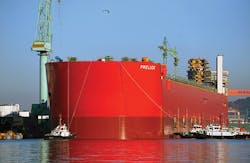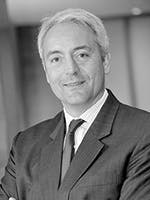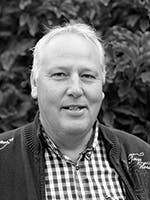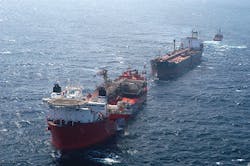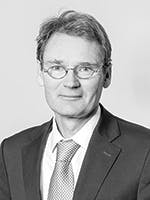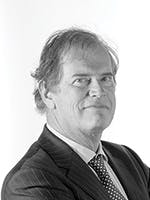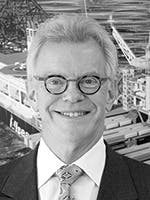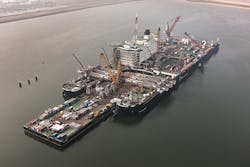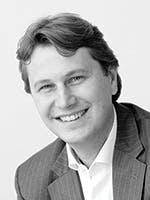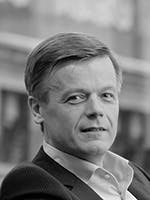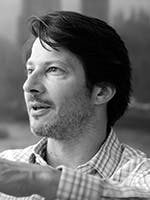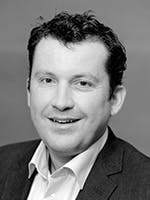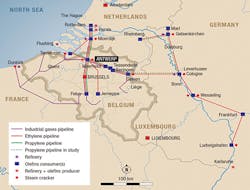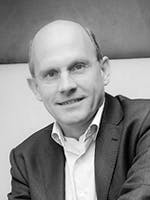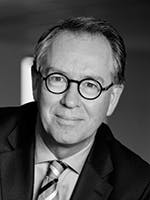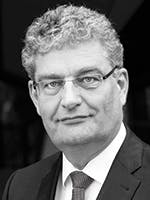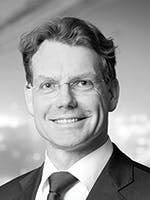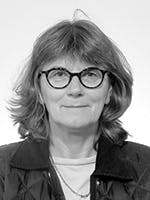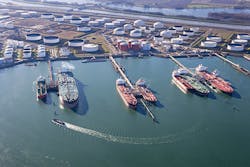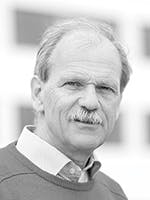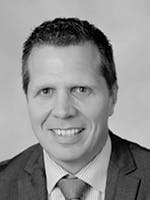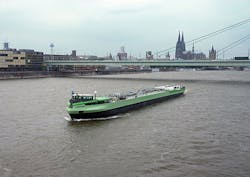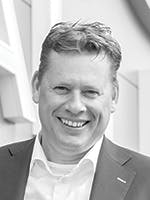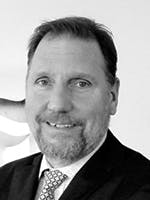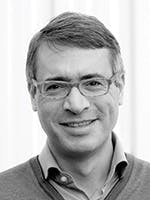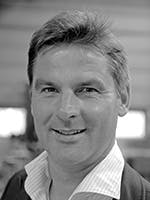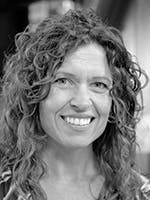The Netherlands
BIG THINGS A SMALL COUNTRY CAN DO
THIS SPONSORED SUPPLEMENT WAS PRODUCED BY FOCUS REPORTS.
Project Directors: Marie Kummerlowe
Editorial Coordinators: Angelo Basurto & Jun Wakabayashi
Collaborator: Gabriela Cordova, Karim Meggaro and Fraser Wallace
Report Publishers: Mariuca Georgescu & Ines Nandin
Cover photo: Carmen Reyes
The Netherlands is not just the home of Royal Dutch Shell, who back in April announced the second-largest acquisition in industry history with its proposed purchase of BG Group for USD 70 billion. It also boasts an impressive array of globally active service providers and is positioned at the heart of Europe's downstream market, combining the continent's biggest port, most concentrated gas infrastructure, and largest storage and refining capacity.
In 1959, the Netherlands became a considerable gas player with the discovery of Groningen field, which remains one of the world's ten largest gas fields, and the country stands today as Europe's second-largest producer and exporter of natural gas with 3.0 trillion cubic feet (Tcf) of production in 2013, according to the EIA. Over 50 years of experience at Groningen has also fostered the development of a sharp skill set for the wider oil and gas industries. "A quarter of the state's income is directly attributable to gas, or gas related activities," explains Mart van Bracht, managing director Energy Division TNO, the Netherlands' organization for applied scientific research. "Many of our other key industries, from logistics to petrochemicals, are also derived from our relationship with gas." Adding oil to the equation, EY argues that the Dutch oil and gas industry is worth almost USD 17 billion a year and contributes 16,000 jobs to the Dutch economy.
With a population of less than 17 million and a landmass of only 41,526km2, how have the Dutch managed to carve out their substantial oil and gas importance and expertise? Apart from Royal Dutch Shell, very few Dutch energy companies are household names. Even if some of the most innovative companies globally are Dutch, braggarts are frowned upon in this culture that maintains elements of the Calvinist tradition. Rather, companies prefer to invest in people and innovation as a winning combination and offer results rather than catchphrases, in line with their ultra-direct culture. The oil and gas industry's strength comes from this Dutch spirit and a backbone of independent and often family-owned companies, as well as the cooperation fostered between these actors.
The Dutch "polder model," or tradition of cooperation despite differences, is a helpful explanatory tool. A polder is a tract of low land reclaimed from the sea and protected by dikes. "The Dutch had to collaborate or else they would drown," explains Eric Wesselman, a partner at KPMG Netherlands. "That's why it's in the Dutch culture to cooperate: from the center of the country, water is pushed from farm to farm until it reaches the sea. If we didn't collaborate in this way, the country would be submerged. The Dutch are willing to challenge, but also to share knowledge and resources, and that makes us unique. It also affects how we look at the world: we see ourselves as part of the world we live in rather than separate from it; we are successful because we can easily connect with other individuals, companies, and countries." This understanding of the value of sharing information and partnering to bring complementary strengths has trickled down to the oil and gas sector. Geography has further strengthened this common-sense, consensus-based model. VandeGrijp's managing director Paul Nederlof, argues that "the close physical proximity that Dutch companies find one another in is an important contributing factor to generating this connectivity."
Like their merchant ancestors, today's players do not shy away from new markets around the world. As Sander Vergroesen of the IRO, the association of Dutch suppliers in the oil and gas industries, explains, "we are a very small country, but we have been sailing the oceans for hundreds of years. We are sailors , and we are merchants; and when oil and gas appeared on the scene, it was the next step. Over the years we've developed as an industry, and since we are used to coming up with solutions all over the world, we are constantly trying to improve every day. This is what we are good at because since the beginning we have been used to developing together."
THE FAMILY CONNECTION
A key factor in the oversized destiny of this small nation has been the vitality of family-owned companies. According to PwC, 69 percent of all Dutch companies, excluding sole proprietorships, were family businesses in 2014, with these family-owned dynamics pervading the oil and gas sector as well.
"The culture of being a family owned company means we can keep our course straight," asserts Jan-Pieter Klaver, CEO of Heerema Marine Contractors. "People are proud to be a part of this company that works on projects that make people say 'Heerema can do things other companies can't.'"
Klaver even associates his company's role as a North Sea trendsetter to this family-company DNA. "We have seen since the late 1970s, with the introduction of our vessels Balder and Thialf into the North Sea, that the market has also followed along with us to a certain extent, and this is still true today. There are only specific companies that have the ability to do this: companies like Heerema that are family owned, take a long-term perspective rather than short-term, and are not listed."
Another Dutch family success story is that of A.Hak, a provider of pipeline, inspection, storage tank, and industrial services. Member of the board and former CEO W.D. van Geenhuizen pinpoints the importance of this family-owned background: "A.Hak has always been a family owned company. This allows us to let the company benefit from every cent of profit we make. As a father, I'm very proud to say that my son and daughter have stepped up to the responsibility of managing the company, with my wife and myself as their chief advisors. After 51 years, in which we expanded from a modest local firm to a global player to be reckoned with, A.Hak looks forward to a challenging future, as a family business." The family element alone does not account for A.Hak's success, however. "Our entrepreneurship and continuous innovations are the driving forces behind our growth. We always keep an open mind to acquisitions that can further complement our already impressive range of interconnected services," concludes van Geenhuizen.
Even Dutch listed companies draw upon this family-owned mentality. Arjan de Vries, COO Energy at Brunel, the globally active Dutch human resources specialist, believes that "although we are a listed company, which helps us to be compliant, transparent, and financially powerful, 60 percent of the company's shares are in the hands of the primary shareholder. I like to think that this makes us a stock-listed, family-owned company: the best of both worlds. We can be really entrepreneurial here: we have our responsibility to the stock market, but we can also develop long-term strategies that we believe in."
GOD MADE MAN, THE DUTCH MADE HOLLAND
The Dutch farming heritage, strong family-enterprise tradition, and no-nonsense attitude have shaped industry players and dynamics, but perhaps more important is the Dutch refusal to accept a set of conditions given at the outset. After all, almost half the country was reclaimed from the sea.
"In Dutch, 'research' translates to 'search again' or 'onderzoek,' which for me has a more expansive view of what research actually means," explains Frits Doddema, managing director of Seal for Life, a Dutch expert in corrosion prevention and control. "As managing director, I aim to gain a better understanding of the industry needs by collaborating with local and international players and universities to learn and innovate beyond the basic requirements."
Reliability is one of the top concerns of the Dutch: innovation is not about fancy words but about concrete, long-term solutions. Seal for Life illustrates this mindset with their advanced communicative coatings. "We can guarantee our coatings for the life of a pipeline. In other words, what we put on does the job and does it safely; we have never had a product installed that was faulty or failed to effectively meet the demands of our clients. To give one example of our effectiveness, our coating has been used by Saudi Aramco in Saudi Arabia since 2002. For all the pipelines we have rehabilitated, there have thus far been no case of failure," asserts Doddema.
World-leading pipe supplier Maats has also decided to build its expertise via long-term, in-house innovation. "Five years ago, we were building only 20 percent of the products we supplied to clients, whereas today we supply approximately 80 percent in-house products," explains CEO Gerbin Wansink. "Taking note of what our clients were demanding, Maats decided to offer real solutions by tweaking the existing machinery and developing our own brand of pipeline equipment. Since quality is a major concern for ourselves and our clients, we decided to create new innovative machines and further expand our collaborations with other companies."
Furthermore, "we are constantly trying to innovate in developing and engineering new equipment and improving existing equipment by adding the latest technology to our machinery, such as load indicators, sensors, and even enclosed cabins with air conditioning. These extra-added features give assurance to our customers around the globe where regulations exist and give their employees comfort they might not find elsewhere," adds Wansink.
In offshore as well, the Dutch are pushing the envelope. Global geotechnical provider Fugro is betting on innovation even in tough financial times. "What we've decided here at Fugro is that we will not cut out our R&D unit, and we will continue to protect all our efforts in innovation. We are very careful to maintain our expertise, and when the market goes back up we will use this core of knowledge," claims the company's global CEO Paul van Riel.
Since divesting of its geoscience division to CGG in 2012, Fugro has refocused on its core expertise in geotechnical and survey services. Current innovation projects include a standardized geotechnical laboratory data analysis package and subsea laser vision technology for automated fast pipeline and subsea structure inspection, as well as upgrading the world's most accurate GPS positioning system for offshore use.
The Netherlands has a leading innovation culture in such disciplines as heavy lift, short sea shipping, and long-distance towing, a field in which Alp Maritime Services is geared to set a new industry standard with its Alp FUTURE Class. Alp Maritime Services is the "only towing company that has invested heavily in towing vessels with multifunctional anchor handling capacities and DP II capability," details CEO Paul Mulder.
The "FUTURE Class boasts not only 3,500 tons fuel capacity, which is roughly 1.5 times that of current vessels on the market, they also have 300 ton bollard pull compared to the 200 tons of our competitors," adds Mulder. Alp Maritime Services' vessels will serve to increase efficiencies in long-distance towage due to their fuel efficiency and decreased transit time, major advantages at a time when both costs and the green agenda becomes ever more pervasive concerns.
INNOVATING AT A LOWER OIL PRICE
The Dutch focus on reliability and efficiency is especially salient following a year of lower oil prices. Local players realize now is a prime time to push for efficiencies neglected in years past, when a record high oil price made speeding through projects the priority.
"Now is a great time to review what happened during that last period and improve efficiencies, based on the idea of saving costs for clients," according to Brunel's de Vries. "This is a great opportunity for us: we get to talk to our clients, build better relationships with them and partner with them to help them realize those savings."
An oft-cited example of Dutch innovation bringing these efficiency is Ampelmann, a provider of offshore access solutions that make arriving at offshore structures "as easy as crossing the street." CEO Jim Craig asserts that before our walk to work systems not only promote safe business practices, they also increase the speed with which employees can access offshore structures and cut costs on such transport-related expenses as helicopter shuttling trips."
Recognizing the benefits of Ampelmann's technology in terms of efficiencies and customer satisfaction, Chevalier Floatels has converted two of its accommodation units, the DP Gezina and DP Galyna, with the Amplemann system. "We were very innovative in this sphere being the first to own a dedicated DP2 W2W accommodation vessel with an Amplemann system, whereas most other market participants only use an Ampelmann system for certain jobs. Chevalier Floatels want to expand in this segment and is looking into bigger bed capacity for larger projects," details CEO Marcel Roelofs.
However, one of the most active companies helping the Dutch to put in place these efficiencies is not home-grown but rather Scandinavian software provider IFS. "Companies have not only begun streamlining processes from an operational standpoint, but also from an IT point of view. That's where IFS has experienced the most market opportunities," claims Marco Verdonschot, managing director of IFS Benelux. "We've been able to provide our expertise in areas of enterprise resource planning (ERP), enterprise asset management (EAM), and enterprise service management (ESS)-ultimately creating custom-tailored solutions that help clients operate more competitively from an efficiency perspective."
The Dutch flagships have taken notice, and vessel maker Royal IHC has chosen IFS as its software partner. "In line with the "One IHC" vision, IFS is helping to increase business agility, transparency, and uniformity by consolidating 17 different ERP platforms into one-IFS Applications," continues Verdonschot.
Royal IHC's CEO Bram Roelse, concurs and adds, "it is not possible to compete solely by working harder - we have to offer supremely integrated, innovative products. This means we invest in developing tomorrow's designs."
KEEPING UP WITH E&P
Just as its North Sea neighbors, the Netherlands faces a serious challenge in terms of declining production. An additional USD 1.525 billion is needed to maintain current production levels according to the EBN, the Dutch state-owned body that assists operators. The authorities are keen to turn the tide and ensure 30 bcm per year in production by 2030, especially as much valuable infrastructure will be decommissioned if a sufficient level of E&P activity is not maintained.
Back in 1974, the government already introduced a small field policy to preserve the Groningen asset and encourage production in smaller fields with a guaranteed buyer. Since 1974, smaller fields have actually produced more gas than the larger Groningen field. By 2010, though, production was declining, leading to the introduction of a marginal fields tax that has been well received by industry and experts alike. According to Wood Mackenzie, between 2011 and 2028 projects benefiting from this tax will add 17 bcm of reserves or 10 percent, a value of USD 785 million to companies and USD 925 million to the government. "This incentive has worked well," concurs Jo Peters of the Netherlands Oil & Gas Exploration & Production Association (Nogepa). "Now Nogepa hopes to encourage the government to reinforce this allowance which would certainly deliver more developments. The horizon for encouraging investment needs to stretch for the next five to ten years and have an international perspective."
However, declining reserves and the current low oil price are not the only challenges the industry must face: public opinion of gas has taken a major hit since small earthquakes began to occur around the Groningen field in the late 1980s, with more frequency in the past five years. This summer, the government mandated a cap on production at 30 bcm, a 24 percent year on year reduction. This sharp decrease will have a major impact on overall production, as Groningen field currently represents 75 percent of Dutch production, according to the EIA.
Nonetheless, industry players remain cautiously optimistic. In 2014, of the 93 E&A wells spudded in Europe, the largest number (28) were in the Netherlands, according to Wood Mackenzie, which also estimates that E&P activity will increase locally in the next five years. "The general consensus seems to be that Dutch upstream is still interesting because of the relatively low capital requirements and low political risk," argues Eric Wesselman of KPMG. Gilbert van den Brink, managing director of Wintershall, concurs. "The E&P environment in the Netherlands is good, predictable, and stable. The authorities are reliable partners to work with, despite the maturity."
As a mature market, "many of the larger players have moved out, to be replaced by smaller operators," adds Wesselman. "There are more operators here today than in previous years, including some that have entered upstream operations for strategic reasons, including GDF Suez and Taqa...Nonetheless, one important thing to consider is that the overall level of activity in the market today is not increasing, despite the number of new companies arriving," cautions Jeff Sluijter, partner at EY.
Furthermore, "the current government's focus on renewable energies means that they are not properly incentivizing the production of gas in the Netherlands… If investment were put into increasing gas power generation, it might in turn make the upstream more attractive," adds Sluijter.
Operators are thus looking to new plays and novel techniques to increase production. Van Bracht of the TNO argues that "most of the increase in production must come out of existing fields. Enhanced oil recovery is essential, and, along with EBN, TNO is investigating intensively possible means by which to improve recovery rates. The operators have are extremely interested in field life extension and for re-opening stranded fields, and so our work is extremely important to these enterprises."
German operator Wintershall has not shied away from novel plays in gas, especially for tight gas at the K-18 Golf field. "Developing tight gas offshore is not the most obvious thing to do of course, but we carefully looked at our options, working closely with expert consultants to complement our in-house knowledge from well stimulation to hardware subsea well design. To be totally honest, the development of the field, which is taken as a phased approach, has thus far exceeded our expectations," van den Brink asserts.
The company is already broadening its portfolio into oil with the discovery of an oil accumulation in block F17 in 2013. "It's an enviable position to be in, to be in this mature base with an incredible amount of expertise, while still being able to produce a healthy profit margin," van den Brink concludes. "The recent oil finds will take us into the future. Hence, I still see a bright North Sea future ahead of us."
The newest entrant to the Dutch market, Petrogas E&P, who purchased Chevron's North Sea blocks in 2014, is also betting on new plays in gas. "We are now the leading producer of shallow gas in Northwest Europe. It's still a relatively new play, so we see significant running room here in the Netherlands and potentially other areas in the North Sea," explains Nick Dancer, managing director of Petrogas E&P Netherlands.
MOVING INTO OFFSHORE
The Netherlands' continental shelf may be less active than that of its Norwegian neighbor, but offshore expertise developed locally serves the global industry. Although this market segment has been hit by a lower oil price, many Dutch companies are making lemon into lemonade and seizing the moment to increase their offshore footprint for the inevitable market upturn.
Volker Staal and Foundations (VSF), a civil contractor specializing in heavy and complex foundation work, traditionally focused on the onshore industry and stands today as a clear example of the move many have undertaken towards a dual onshore and offshore focus. Managing director Pieter Arie Kraaijeveld has steered the company's course into the offshore, which he cites as "an extremely dynamic and interesting market due to the different types of contracts and different ways of cooperating with clients."
"As opposed to ten years ago, we're getting more and more into offshore. Although we're relatively small in scale as a company, we've started to invest in more fixed assets. For instance, we just recently rented a spot in Vlissingen to build the test jacket for the Pioneering Spirit. From our perspective, there are limitless possibilities to cooperate with other service providers in the offshore industry-further strengthening our interest," he explains.
Onshore pipeline specialist Selmers has built a solid reputation for its extensive in-house R&D initiatives and expansive portfolio of pipe blasting systems, handling equipment, and coating solutions. Since his arrival as CEO in 2012, Roderik van Seumeren, has decided "to diversify the portfolio and shift towards offshore work, striving to structure a substantial percentage of our business to this particular sector by 2017."
Meanwhile, De Regt Marine Cables joined CGG's equipment-focused subsidiary Sercel in 2012, strong on over 90 years of experience in cable design. Now a leading designer and manufacturer of custom-engineered, dynamic cable solutions for subsea applications, De Regt has also decided to shift towards offshore, but from a seismic rather than onshore positioning. Managing director Claude Pelzer aims "to grow the company within the oil and gas and energy markets given the plethora of opportunities for innovative, value-adding companies like De Regt Marine Cables. In oil and gas and energy, our cables offer ideal solutions for remotely operated vehicles (ROVs), blowout preventers (BOPs), and large trenchers, among other applications."
"De Regt Marine Cables is focused on building long term relationships and furthering its reputation as reliable company committed to delivering the products clients actually need, especially at a time when quality and efficiency are at the top of energy companies' agendas," Pelzer adds.
Designer and manufacturer of specialized machinery Kreber has a long-standing presence in offshore, but new management is actively strengthening its market penetration. Director Paul Dits decided that "given the strengths of Kreber from its large manufacturing plant to its strategic location, and in-house engineering team, there was more potential for us in the offshore market."
Kreber's unique customer-centric offering is based upon collaborating with clients for tailored seawork machinery. "Without giving away our NDAs, we continually receive inquiries from clients on how they can improve their activities and efficiencies offshore thanks to a Kreber machine that has such or such capabilities. Most of the products we develop are the result of a specific client request for which we undertake a feasibility study, develop, and market the product. We focus 100 percent of our efforts on such tailor-made solutions. In essence, every machine we build is an innovation because it is a tailor-made product and is used by clients to solve a problem that has not been solved before," affirms Dits.
In terms of pushing the limits beyond simple offshore activities, subsea is another horizon for the Dutch. Home grown N-Sea Group hopes to become a leading subsea IRM company after acquiring Stork's subsea division in 2014, while equipment provider, PFF Group, one of the four companies around the globe that has an enterprise framework agreement with Shell, is now looking more into subsea. "In preparation for huge growth in the subsea business, our parent company has recently set up a subsea division within the Galperti Group. To effectively capitalize on forecasted demand, we're working on modifying or enhancing our sales activities in the region to appeal to the type of clients found in subsea," claims CEO Richard Cornelissen.
Cornelissen also looks to international expansion to complement PFF's growing portfolio. "We started our first non-Dutch venture in Germany about six years ago. Now, another six years down the road, we've ended up with 15 different branches, further fuelling our worldwide diversification initiatives across market segments and product lines," he concludes.
GLOBAL EXPLORERS
"We are a small country, but the Dutch are everywhere. If you are on some spot in the world, there will most likely be a Dutch man there," claims Kraaijeveld of VSF. "The way the Dutch people see business opportunities brings them all around the world. The country boasts a plethora of those types of individuals with an inner hunger for self-improvement and professional development in the context of an increasingly globalized economy." Indeed, the Netherlands boasts the world's largest maritime cluster and ranks fifth in terms of global exports, with 70 percent of GDP resulting from these exports. For many local oil and gas companies, even more than 70 percent of business is destined for beyond Dutch borders.
Royal Dutch Shell has embodied this Dutch ethos since 1907, and the company's office in the Hague hosts Shell's international upstream business and one of Shell's three global research labs. As Dick Benschop, president director Shell Netherlands, explains, "many new innovative developments in Shell often have Dutch origins, such as gas-to-liquids, which started in 1973 in the lab in Amsterdam and was developed into the Pearl GTL plant in Qatar, from where products are now coming back to Rotterdam. Another example is the Prelude FLNG facility, which is destined for Australia, and is currently being built in Korea by Samsung Heavy Industries: the first design and some of the testing of water conditions were done in the Netherlands."
Australia, with its LNG developments, is one area where the intrepid Dutch are flourishing. The Shell Prelude FLNG will be the world's first FLNG development and the largest floating offshore facility in the world, with 260,000 tons of steel used to complete the facility. More than just massive for Shell, this project provides business for a host of other Dutch innovators, such as SBM Offshore. This leading player in the FPSO market "was actually started through a patent of a mooring system for the world's first FPSO for another Dutch flagship, Shell," according to CEO Bruno Chabas, and is now supplying a large complex turret mooring system, which itself is as large as the Statue of Liberty, to Shell's landmark Australian FLNG venture.
For other LNG developments in Australia, companies like Heerema have "built Aegir, an extremely versatile vessel for (ultra) deepwater markets, currently active on the Ichthys LNG project in Australia, and performing better every day," notes Klaver, the company's CEO.
The Far East has been a Dutch target since the heyday of the VOC (Dutch East Indies Company), and today Dutch energy players are actively expanding their Eastern footprint. Balance Point Control has a strong in-house engineering team that can provide rapid and complex solutions for well interventions as "a fire brigade for Europe." It is now looking to spread its model of technical excellence globally, alongside mother company Superior Energy Services. "Through joint-venture operations, we're currently working on several long-term contracts in Africa and the Middle East. We're already established ourselves in Thailand within the past two years, but now we're looking to further expand our presence in Asia with a regional office in Kuala Lumpur," details general manager Lammert de Wit.
"Asia and Africa, which have traditionally sat at the lower ends of the market, now encompass the same level of quality, capabilities, and regulatory requirements as tighter jurisdictions such as the UK or Norway, certainly when the international oil companies are involved," claims Hugo Heerema, president and CEO of Bluewater Energy Services, an innovative Dutch FPSO company. Dutch service providers are thus taking their high-end expertise to new markets, as they advance in terms of technical difficulty and maturity.
"Bluewater is turnkey supplying two very large turret mooring systems to Saipem for Total Angola's Kaombo FPSOs. Our efforts have not only focused on developing technology on the back of a project, but also individualizing our specialties to bring some truly unique patents to the market, whether it's in the areas of LNG loading and offloading systems or floating production and storage facilities," details Heerema.
Even more exciting than Africa for Bluewater is the Gulf of Mexico, which has seen a resurgence of activities with the opening up Mexico's oil and gas industry to valued-added outside expertise. Bluewater's consistent positioning as a technology leader for the FPSO market has it poised for new opportunities in this effervescent market. "We're actually now close to signing a contract in Mexico, where our FPSO will be operating on a ten-year basis with production activities spanning 20 different wells, averaging half a year stay per well. In these cases where installing mooring systems for multiple half year productions incurs massive capitalized costs, DP serves as the more cost-efficient and economical method for production," adds Hugo Heerema.
Nonetheless, all of these exotic locales should not distract from the continued Dutch commitment to the region where the Dutch have grown and refined their expertise - the North Sea. This holds all the more true today as the decommissioning market heats up.
As Jan-Pieter Klaver explains, "the North Sea has been extremely important for Heerema, both throughout its history and in recent times, having gone through something of a revival over the last five years. We expect the North Sea to continue to be an important basin for our activities, not just in green field projects but also in decommissioning. The knowledge and experience that Heerema has built up in the North Sea are crucial to our global activities: as one of the most difficult environments on the planet, we can transfer the knowledge gained here to other markets." Meanwhile players like Allseas maintain their strong presence in the North Sea through such ground-breaking vessels as the Pioneering Spirit and the Amazing Grace, slated to be delivered in 2021.
Bluewater Energy Services, another traditionally strong North Sea player linked to a Heerema brother, secured the engineering, procurement, construction, and integration contract for the turret and mooring system of the UKCS Rosebank field FPSO in late summer 2015. Measuring 80 meters in height and 34 meters in diameter, this turret and mooring system will stand as one of the largest in Bluewater's history.
Finally, it is not simply in the upstream that Dutch companies flex their global muscle. Dutch independent storage provider VTTI has spread its brand of Dutch service to Manhattan, which Dutchmen will gleefully inform you was once New Amsterdam.
"We filed for an IPO with the SEC to be able to take advantage of the strong and experienced investment base for the midstream market in the US, and, in the process, we have become the first global terminal MLP company in the US. There are massive growth opportunities available globally in a very fragmented midstream market, and VTTI decided to undertake the IPO to help bolster our role in facilitating more consolidation," says Rob Nijst, CEO of VTTI.
Royal Vopak has also focused major efforts abroad, not far from Malacca, the key Asian trading port the Dutch conquered in 1641. Today the Dutch independent storage leader has expanded its network via the Pengerang Industrial Complex (PIC) at Malaysia's Southernmost tip. The PIC is Malaysia's first independent terminal complex and is located in the same development zone as the currently under construction Petronas Refining and Petrochemical Integrated Development (RAPID) complex. "We've proven that the location is indeed very suitable," argues Royal Vopak CEO Eelco Hoekstra. "We see this as a major step in our development in Southeast Asia. We now have land available for further growth, and if we have our way in the next decade, it will serve as a tactical asset in our expansion efforts moving forward."
DOWNSTREAM DOMINANCE
The strength of the Netherlands downstream industry extends well beyond Dutch borders, in large part thanks to fortuitous geographic positioning. The Netherlands, and more specifically the Port of Rotterdam, serves as the gateway to Europe. "Approximately 75 percent of products being consumed in Europe pass through the Amsterdam Rotterdam Antwerp (ARA) region, and more specifically Rotterdam with its extensive links to the hinterland," explains Nijst.
According to the EIA, the Netherlands was the number one world importer of refined petroleum products (at 1.84 mb/d) and the number two exporter (at 2.09 mb/d) in 2013. Within this model, oil refining and storage is centered around Rotterdam and supported by such players as Royal Vopak and VTTI, while gasoline storage is focused in Amsterdam with players like Oiltanking.
Given the unique positioning of the ARA, independent terminal companies are keen on re-enforcing their presence locally. "Our key priority is to continuously expand on our existing sites. We have been doing this recently in Antwerp and Rotterdam, where we commissioned new projects to keep our facilities up to high industry standards and to thus yield higher returns," explains VTTI's Nijst.
But as Peter van Wessel, regional director of Oiltanking Europe, points out, "the Netherlands hosts perhaps an overcapacity of tanks in ARA, with many of them beginning to age past their useful life. The first generation of these tanks was built in the 1970s, with the last generation built a few years ago, but there are even older fixed assets built in the 1950s and 1960s as well. Combined with changing legislation regarding tighter emission controls and safety and environmental regulation, the older terminals need to invest a lot of money to keep up. With such constant capital-intensive maintenance, consolidation in the industry is inevitable."
VTTI is prepared for market consolidation in the ARA and beyond following their successful IPO. The company has strong growth momentum since its creation in 2006, advancing from zero to eight million cubic meters capacity and now operating in 11 countries across five continents. In addition to the speed of its ascension to the ranks of the leading independent storage companies, "VTTI's unique selling point is the flexibility and efficiency we offer to best service our clients and stakeholders," proudly affirms Nijst. "Indeed, we started this company by designing our terminals based on the stringent requirements of one of the most demanding traders in the world and based on our clients' trading ventures. For this reason, we possess many capabilities around blending, pipeline diameters, and pumping that collectively constitute flexible and efficient operations, while the company's overall culture has grown around this trader spirit that shapes our accommodating approach towards customers."
The Netherlands is not only a major storage provider with approximately 210 million barrels of storage capacity-more than 170 million barrels in Rotterdam alone-but also a major petroleum liquids refining hub. The nation hosts five refineries, including the Europe's largest, the Shell Pernis, and boasts 1.2 million b/d of crude oil refining capacity in 2015, according to the Oil and Gas Journal.
However, the industry is facing a multitude of challenges, particularly growing overcapacity in Europe as new developments come online in the United States, Middle East, and Far East, all former destinations of Europe's refined products. Of the five refineries in Rotterdam, Kuwait Petroleum International cancelled a planned investment in its facility in 2014 and decided either to sell or convert the facility into a storage terminal. Other players, though, have reacted by pushing for gains in efficiencies and flexibility rather than divestment. As Hendrik Muilerman, CEO, BP Netherlands, notes, "the Netherlands is the best place for a refinery because this is where most of the innovative capabilities, and subsequent upgrades exist-not to mention the country's status as a regional energy hub."
CHAMPIONING THE GAS AGENDA
A traditionally strong gas player with an extensive network of domestic and export pipelines, the Netherlands now faces a damaged public perception of gas due to the Groningen earthquakes, while gas' place in the energy mix has been challenged by a combination of renewables and cheap coal.
Shell's CEO Ben van Beurden told the European Parliament in 2013 that "a combination of policy and market conditions, including the availability of cheap coal and the low carbon price are leading to some unintended outcomes: the carbon reductions delivered by significant investments in renewable energy are being cancelled out by growing coal-based power generation. And at the same time, gas, a low-carbon energy source, is being squeezed out of the European power market."
The Dutch industry is actively championing gas as essential in the energy transition thanks to its relative environmental friendliness. Furthermore, "gas is essential in providing the flexible and cheap means of balancing the whole energy system where we see more and more sources of energy being introduced that are not flexible and that are dependent on wind or sun," asserts Gertjan Lankhorst, CEO of GasTerra, the Dutch state-owned natural gas trader. "We need a system that can cope with this unpredictability. The most effective way to accommodate all of these fluctuations is to use the dense gas grid that we have in large parts of Europe and here in the Netherlands."
Recognizing the centrality of gas to security of supply but also that reliance on indigenous gas reserves would only go so far, policymakers and industry players have been drafting the nation's gas future for some time. The solution has been to build upon the Netherlands' world-class gas infrastructure via the 'Gas Roundabout' concept. "Initial foresight of dwindling supply security in the Netherlands, was in part, the reason why Gasunie, in line with the government's objectives, created the 'Gas Roundabout.' With this expansive and interconnected network of gas infrastructure, gas can now flow from multiple sources in and out of the Netherlands, whether it's from the country's own gas fields or other countries such as Norway, Russia, Denmark, and, in the form of LNG, from a variety of other supply areas all over the world," explains Han Fennema, CEO of Gasunie, the Dutch state-owned natural gas infrastructure and transportation company.
This Gas Roundabout includes Gasunie's gas pipelines, gas trading via the Title Transfer Facility (Europe's largest natural gas trading center in terms of spot volumes since 2014) and the ICE Endex, gas storage with such projects as TAQA's Bergermeer gas field, and the Gate terminal, a LNG transfer hub.
Industry players have now moved towards a discussion of the 'Gas Roundabout 2.0' concept, based on the opportunities for building the infrastructure around LNG and pushing the agenda for new uses of gas, as well as a diversification of gas sources and the development of a spot market. According to Shell's Benschop, the 'Gas Roundabout 2.0 concept' will also address concerns on gas, which has been slighted in the energy transition in favor of a renewables/coal mix in many European countries. Gas Roundabout 2.0 will show "how gas and renewables are going to work together as the backbone of the new energy system, which will not only be about renewables; gas will be included as well, not just as a transition fuel but as a systems fuel," explains Benschop. "The Netherlands is in a particularly interesting place for this due to its large existing gas infrastructure and knowledge base, and the fact that the country is developing renewables today on a much larger scale than before. We are figuring out how to combine all of these elements, and how the Netherlands can be used as a lab to test how this new energy system will actually function."
All of these gas initiatives have a keen importance, as "the Netherlands is the fourth largest gas consumer in the EU after the United Kingdom, Germany, and Italy," according to Robert Goevaers, director of the National LNG Platform. This platform's ambition is to reach 50 seagoing ships, 50 river going vessels, and 500 trucks running on LNG by the end of 2015.
LNG'S TIME TO SHINE
LNG celebrates it 51st birthday in 2015, but the Netherlands does not consider the concept as over the hill at all. According to Royal Vopak CEO Eelco Hoekstra, "LNG was four percent of global gas trade, and now it has reached ten percent. If it reached ten percent last year that means it is on the rise and has been continuously rising. Several factors contribute to the appeal of this fossil fuel, especially the sheer availability of gas worldwide and the price at which it can be produced in certain countries… It will indeed take a while to build up the asset base, especially when considering the capital-intensive nature of LNG. But if the evolution of oil throughout history is any indication, the commoditization of gas will likely continue over the next 20 to 30 years at least."
LNG is becoming a larger part of day-to-day life locally with its increasing small-scale use as a transportation fuel, in order to reduce CO2, NOx, SOx, and particle emissions. With a lower LNG price and more than enough LNG supply at the moment to cover demand, the Netherlands is betting on importing LNG and using it to servicing local markets thanks to highly-developed local infrastructure.
In 2011, the Gate terminal was launched as the Netherlands' first LNG import terminal, boosting the Port of Rotterdam's ambition "to become the number one European import, export, and bunkering hub for LNG," according to Bas Hennissen, vice president industry and bulk business at the Port of Rotterdam. According to Coby van der Linde of the Clingendael International Energy Program (CIEP), "the whole idea of the 'Gas Roundabout' is to create a logistical nexus here in the Netherlands. In terms of gas, the objective is to create optionality in the system. The model for the Gate terminal means that players have the capacity to import LNG if they desire, for retail here or in wider markets."
"Decreasing production from resources, including Groningen obviously has implications for Rotterdam's ambition to be a 'Gas Roundabout'. Falling production has huge geopolitical implications for the Netherlands, including where we source gas. The Gate terminal gives us further options in that regard. Investments in LNG developments are continuing - it is likely that the LNG terminal will become of increasing importance as gas reserves fall," argues Cees Jan Asselbergs, director of Deltalinqs, the association for logistics, ports, and industrial enterprises in Rotterdam.
A major step forward has been Royal Vopak and Gasunie's LNG break-bulk facility launched at the Gate terminal in early 2015. "The break bulk facility aims to increase the distribution and use of smaller scale LNG services," explains Fennema. "This is the first, in what we hope, of many break bulk facilities for maritime vessels and industrial vehicles that will be developed along the shores of the North and Baltic seas. In the context of the energy industry's overall supply security, small-scale LNG shipments effectively create opportunities for those not connected to gas grids to leverage LNG, as a cleaner and more cost-efficient transportation fuel alternative to oil."
Shell is banking on a strong gas agenda, bolstered by its proposed acquisition of BG Group and its FLNG. It is also "working to develop LNG as a transport fuel across the value chain, the first steps of which will be heavy road transport and barges. We will be opening our first LNG filling station for trucks in March in Rotterdam, and two years ago, we took the initiative to order two LNG-powered barges, newly built here in the Netherlands… The next step will be initiating LNG in the maritime sector - we have an agreement for a break bulk facility here with Gate terminal and will be the launch pad customer for this facility. We are also looking at ship-to-ship bunkering as well," notes Benschop.
The supporting services industry is concurrently gearing up for this shift towards greater LNG use. "Our Dutch DNV GL teams have an abundance of insight and experience with LNG as transportation fuel, and we have positioned ourselves as a leader in the developing local and international market for what is often called downstream LNG," says Ben Oudman, country manager Netherlands and head of gas consulting and services at DNV-GL.
"We are the safety risk advisor to the Dutch LNG Platform, while we also perform most of the quantitative risk assessments related to LNG for the Port of Rotterdam, Royal Vopak, and GDF Suez, among other companies. Our expertise has made us the preferred safety risk advisor pertaining to the sighting of LNG fueling stations for road transport and bunkering facilities for inland vessels," continues Oudman.
Indeed, this focus on LNG puts the Netherlands and companies active in this evolution at the center of European policymaking in this area. Oudman concludes, "given the leading position of the Netherlands regarding downstream LNG, our Dutch teams are currently also involved in the EU LNG Masterplan, setting the standards for the introduction of LNG as fuel within Europe."
CALLIDUS GROUP: TRANSLATING THE DUTCH PASSION FOR INNOVATION INTO AN ART
Since its creation in 2006, Callidus Group has focused on the concept design, engineering, and production of high standard, customized solutions for industrial and offshore applications. The company lacks none of the Dutch can-do attitude, with the ambition to solve the unsolvable. "We believe that by creating innovations we can change the world, and we thus aim to develop products and processes that change our industry. Generally, when companies have an idea it remains an idea and does not come into fruition. Callidus Group invests in making dreams come true for our customers by keeping them central and working hand-in-hand with them throughout the entirety of each project," explains managing director Wilco Stroet.
The company sets itself apart even more by investing the lion's share of its earnings back into R&D and promoting a Dutch brand of structured innovation. "Callidus Group is an extremely well structured organization, and we approach problems with extreme discipline. This approach translates into higher creativity and the replicability of our results." The company also encourages out-of-the box thinking by searching for the best talent beyond the traditional oil and gas pool. "It is my belief that many issues in the oil and gas industry have already been solved in other sectors, but we are not aware of these solutions due to tunnel vision within this conservative industry that hinders many innovations. I work to ensure that Callidus Group values diversity and hires people from other industries, such as art and mechanics to enable a broader perspective on how we approach problems," declares Stroet enthusiastically before summing up, "our company is focused on achieving results in a creative manner and that is the real magic that sets us apart!"
INNOVATION IN OFFSHORE LOGISTICS
Peterson started in the 1920s as a family owned company in the grain inspection business and had evolved this quality assurance expertise into the offshore logistics market for oil and gas by the 1970s. By the 1980s, the company had introduced a unique and collaborative offshore logistics model, the South North Sea (SNS) pool.
"We eventually saw a huge opportunity for companies to start sharing resources more comprehensively when, in the late 1980s, they started to talk more to each other as a group of operators. We presented a plan for the operators to pool their logistics resources, including the chartering of vessels and supply bases. Although at this point, operators were beginning to share vessels, we saw an opportunity to step in as an independent charterer, acting as a central point for planning supply runs and also dealing with the details of how to invoice each company for the capacity it was using on these vessels. The combined pool made a lot of sense for operators, and eventually became known as the SNS pool," details Erwin Kooij, offshore CEO of Peterson.
Over the years, we streamlined the concept to open one "new base in Den Helder in 2004, which reduced overall sailing time and allowed us to create a state-of-the-art facility. Over the last decade, most of the industry has moved its operations to our base in Den Helder which is a further testament to the success of the SNS Pool and our initiative in making it happen. The supply base today is still one of the most modern on the globe, and also one of the most compact," explains Kooij.
THE PIONEERING SPIRIT IN EDWARD HEEREMA'S OWN WORDS
It is difficult to truly grasp the scale of the world's biggest ship. It is nearly as long as the Empire State Building and uses as much electricity as the Dutch town of Delft (population: approximately 100,000). The marine behemoth arrived at Rotterdam harbor early this year and is set to begin its first project in the North Sea before year's end. The man behind the PS, Edward Heerema, president of Allseas, explains his labor of love:
"The vessel is novel in every respect - with a lift capability of 48,000-tonne for topsides and 25,000-tonne for jackets, as well as a 2000-tonne tension capacity S-Lay pipelay system. The PS is not only large - at 382 meters long and 124 meters wide - but the idea of implementing motion compensation on that scale has never been done before. We also had to make the system versatile enough to accommodate a wide range of applications including large and small platforms, deep and shallow waters, jackup rigs, and topsides. To integrate such a degree of flexibility into every aspect of the design process creates its own challenges. Thanks to a collective effort over the years, the Allseas team has been able to successfully execute this engineering feat and introduce the PS to the world."
A NETHERLANDS BASE FOR HALF THE GLOBE
The Netherlands is equally an attractive destination for international companies looking to base regional and global operations. For example, US pipeline expert CRC-Evans has chosen to base its onshore operations for the Eastern Hemisphere out of Zeewolde due to the country's favorable operating environment from accommodating tax regimes, efficient logistics network, and customs-friendly borders, as well as its regional accessibility.
As president Mikhail Blekherov explains, "the purpose of the Dutch facility is to consolidate our operations in the Eastern Hemisphere, acting as a center of excellence built for purpose about one year ago, with satellite offices in regions such as the Middle East, Australia, and Asia. Although there is an absence of projects in the Netherlands, we're heavily involved in several other key locations such as Turkey for the Trans-Anatolian gas pipeline (TANAP), France for GDF Suez work, Australia for APLNG and QCLNG, as well as other countries with massive infrastructure investments such as Saudi Arabia, Algeria, Russia, and China."
A DUTCH FAMILY SPIN ON PRIVATE EQUITY
MeeMaken is a unique mixture of private equity fund and family owned company that is steered by Roderik van Seumeren and Natasja Sesink. MeeMaken "basically means 'wanting to be a part of it,'" explains van Seumeren, who founded the fund in 2012 with the initial ambition to bring together ten companies by 2022. As of today, the fund includes four investment vehicles - heavy-lift engineering company Euro-Rigging, pipeline specialist Selmers, hook lifting expert Alltec Lifting Systems, and online digital learning solutions provider BeOne Development Group.
"One of our focuses within each new company is to add all associated support functions to ensure smoother operations. For example, we will implement human resources, IT, finance, or a training department to strengthen companies beyond their core technological capacity," explains Sesink.
"Our added value encompasses two factors: from an operations standpoint, we're capable enough to run the company, and from a business development perspective, my network, through years of experience in the industry, can produce a fluid stream of opportunities whether it's for contracts, strategic partnerships, or general collaborative opportunities," continues van Seumeren.
Given its hybrid status between a family company and a private equity fund, MeeMaken considers "financials important, of course, but we see these as an outcome of a good strategy and a well-run company based on personal values. Our time intervals are much longer than a typical private equity fund, in that we grow people and companies with a genuine interest in long-term success rather than a short-term profit," according to Sesink. "We want to establish fruitful relationships and enable the long-term growth ambitions of the company's greatest assets: the people," concludes van Seumeren.
